
On Wednesday, President Obama assured a reporter that Ray Kelly, New York City's police commissioner, would make a fine leader for the Department of Homeland Security. "Well, Ray Kelly has obviously done an extraordinary job in New York and the federal government partners a lot with New York, because obviously our concerns about terrorism oftentimes are focused on big city targets," he said. "And I think Ray Kelly is one of the best there is. So he's been an outstanding leader in New York. We've had an outstanding leader in Janet Napolitano at the Department of Homeland Security. It's a tough job. It's one of the toughest jobs in Washington. She's done an extraordinary job. We're sorry to see her go. But you know, we're going to have a bunch of strong candidates. Mr. Kelly might be very happy where he is. But if he's not I'd want to know about it. 'Cause you know, obviously he'd be very well qualified for the job."
Senator Chuck Schumer, a New York Democrat, has been lobbying on the NYPD commissioner's behalf. "Ray Kelly has extensive experience with anti-terrorism, with homeland security and he's run a very large organization, the NYPD, extremely well for over a decade," he said in a video release. "And so Ray Kelly would be a great choice for Secretary of Homeland Security." And John Avlon, the centrist political director for Newsweek and The Daily Beast, argued that Kelly should be appointed, and ought to have gotten this DHS job last time around.
This is extremely worrisome -- especially if you're a Muslim American.
Under Ray Kelly, the NYPD infiltrated Muslim communities and spied on hundreds or perhaps thousands of totally innocent Americans at mosques, colleges, and elsewhere. Officers "put American citizens under surveillance and scrutinized where they ate, prayed and worked, not because of charges of wrongdoing but because of their ethnicity," AP reported, citing NYPD documents. Informants were paid to bait Muslims into making inflammatory statements. The NYPD even conducted surveillance on Muslim Americans outside its jurisdiction, drawing a rebuke from an FBI field office, where a top official charged that "the department's surveillance of Muslims in the state has hindered investigations and created 'additional risks' in counterterrorism."
Moreover, "In more than six years of spying on Muslim neighborhoods, eavesdropping on conversations and cataloguing mosques," the Associated Press reported, "the New York Police Department's secret Demographics Unit never generated a lead or triggered a terrorism investigation." The horrifying effects on innocent Americans are documented here. But despite the high costs and lack of counterterrorism benefits, Kelly stands behind the surveillance on Muslims.
To their discredit, many conservatives have suggested, going back to the September 11 attacks, that the government ought to ethnically profile Muslim Americans in the name of counterterrorism. Some even believe race-based profiling should be used in regular police work. A judge found that Sheriff Joe Arpaio, a right-wing populist, actively profiled Latinos in Arizona, but his actions in Maricopa County haven't come close to destroying his core of Republican support.
Democrats have historically vilified not just Joe Arpaio, but all proponents of racial and ethnic profiling. Then-Senator Barack Obama advocated on behalf of Russ Feingold's End Racial Profiling Act of 2007. On being elected president, he promised, "Obama and Biden will ban racial profiling by federal law enforcement agencies and provide federal incentives to state and local police departments to prohibit the practice."* Attorney General Eric Holder, another longtime critic of racial profiling, has worked to put the Department of Justice in a position to monitor Stop and Frisk, the controversial policing tactic that has a disparate impact on blacks and Latinos.
Yet here we are in 2013 watching the first black president and a prominent Senator, both Democrats, along with centrist and center-left journalists, enthusiastically avow that a man who needlessly ethnically profiled and harassed the most vulnerable minority group in the United States would be an excellent choice to lead a sprawling national security bureaucracy that has as big a capacity for violations of civil rights and civil liberties as any part of the government. If you were a Muslim American, would you want Kelly heading up homeland security?
Too bad for you, I guess.
Racial and ethnic profiling isn't a dealbreaker for Democratic elites anymore. A few Democratic congressmen are speaking up. But the Democratic establishment is largely fine with Commissioner Kelly, just like they're mostly willing to extol the leadership of his boss, Mayor Bloomberg.
Of course, Democrats aren't about to praise, let alone elevate, someone like Arpaio, or to stop deeming his supporters racially unenlightened bigots. But don't let them tell you it's because Arpaio is guilty of racial profiling. So long as you have the right persona, come from the northeast, and refrain from attacking prominent Democrats, racial and ethnic profiling is tolerated.
Even rewarded.
On its own, Kelly's treatment of Muslims ought to disqualify him from the position, and even from being praised by the president of the United States. On its own, his treatment of blacks and Hispanics ought to disqualify him from being promoted too. But his tenure has also been characterized by a dearth of transparency that has exacerbated his abuses. As Murray Weiss explains, "The lack of transparency during the Kelly administration played a pivotal role in keeping the public -- and by extension the NYPD -- from recognizing years earlier that the number of stop-and-frisks in New York was escalating to troubling levels. Kelly failed to disclose the stop-and-frisk numbers for seven years despite being required by law to do so. When he was finally forced to release them, the numbers were stunning, and caused critics to ask why stop-and-frisks escalated from 100,000 during Bloomberg's first year in office to 500,000 seven years later."
Although there's no reason to think Obama would be bothered by the quality, contempt for transparency obligations would be problematic in a DHS director -- as would Kelly's alarming treatment of an NYPD whistleblower. This American Life and The Village Voice both have exceptional accounts of the documented police misconduct that occurred during Kelly's tenure, and the intimidation tactics used on the whistleblower, including an attempt at involuntary commitment. If Kelly presides at DHS, can whistleblowers beneath him expect the same treatment?
The last couple of days, the press has been filled with denunciations of George Zimmerman for allegedly profiling Trayvon Martin; and denunciations of Washington Post columnists Richard Cohen and Kathleen Parker for their qualified defenses of that alleged profiling. I happen to agree that Zimmerman acted indefensibly, regardless of whether he was guilty of murder or profiling. I also disagree with both the Cohen and Parker columns, and I have no objection to seeing them criticized. But I grow increasingly frustrated by the media's approach to this issue. As my colleague, Ta-Nehisi Coates, observes, "You should not be deluded into thinking Richard Cohen an outlier. The most prominent advocate of profiling our current pariah classes -- black people and Muslim Americans -- is now being mentioned in conversations to lead the Department of Homeland Security. Those mentions received an endorsement from our president."
Exactly.
Chris Hayes is another lonely voice drawing this vital connection:
Visit NBCNews.com for breaking news, world news, and news about the economy
But the prevailing coverage in the "mainstream media" suggests extreme comfort with ridiculing and shaming America's Zimmermans, Arpaios, and Cohens, as if racial profiling, or defending someone who does it, discredits a person -- but then deference when American's Bloombergs, Kellys, Schumers and Obamas enable, implement, or act as apologists for profiling, though the NYPD and DHS affect vulnerable minorities on a far bigger scale. Joseph Stalin supposedly said that one man's death is a tragedy, while a million deaths are a statistic, and so it goes here: profiling one black man is treated as a travesty -- as it ought to be -- while profiling many thousands of Muslims, blacks and Latinos is a statistic that in no way disqualifies a man from being put up for promotion and praised by the President of the United States.
Unless that changes, until Kelly is as much an object of shaming as Zimmerman, and Obama as much an object as Cohen, racial and ethnic profiling are going to continue in America on an industrial scale. Stopping it requires criticizing the actual people who wield power in this country, not a media class that treads most lightly around the racial injustices that are the most serious.
_____
*PolitiFact has since rated that promise "broken."





 The gender, race, and affect of the faces and voices in for-profit college marketing are the kinds of things I notice in the course of my research about schools like Strayer, Everest, the University of Phoenix and any number of name brands that seem to pop up every month.
The gender, race, and affect of the faces and voices in for-profit college marketing are the kinds of things I notice in the course of my research about schools like Strayer, Everest, the University of Phoenix and any number of name brands that seem to pop up every month.  They are also twice as likely to be poor than women in traditional colleges. And not just poor but quite poor: 16 percent of for-profit students came from families receiving support from the welfare system. For comparison, just 2.6 percent of public and 1.6 percent of private not-for-profit students were engaged with the welfare system. Low-income female students from every racial/ethnic group are nearly three times as likely to attend for-profits as their higher-income female counterparts.
They are also twice as likely to be poor than women in traditional colleges. And not just poor but quite poor: 16 percent of for-profit students came from families receiving support from the welfare system. For comparison, just 2.6 percent of public and 1.6 percent of private not-for-profit students were engaged with the welfare system. Low-income female students from every racial/ethnic group are nearly three times as likely to attend for-profits as their higher-income female counterparts. Maxine’s economic and social position is urgent,
Maxine’s economic and social position is urgent, 



















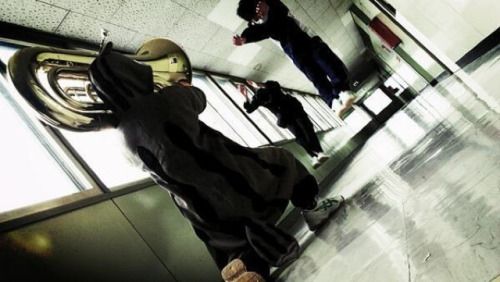
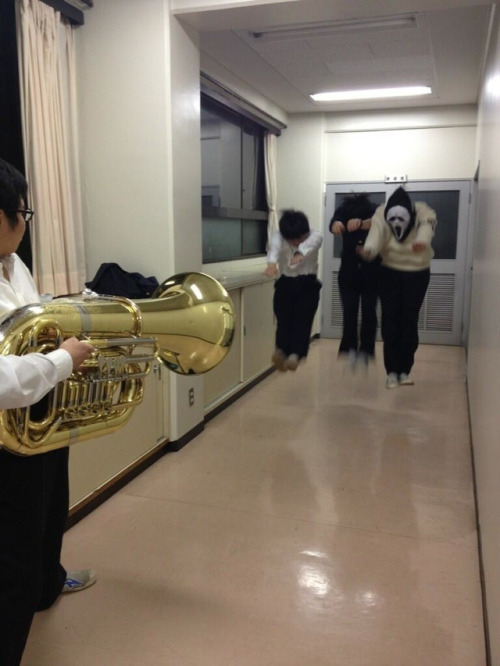
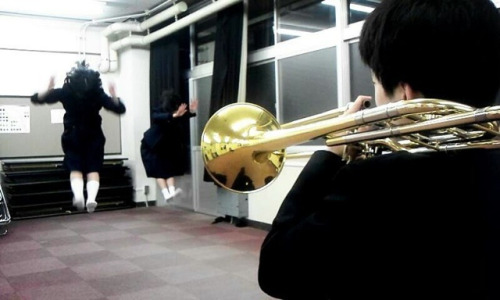
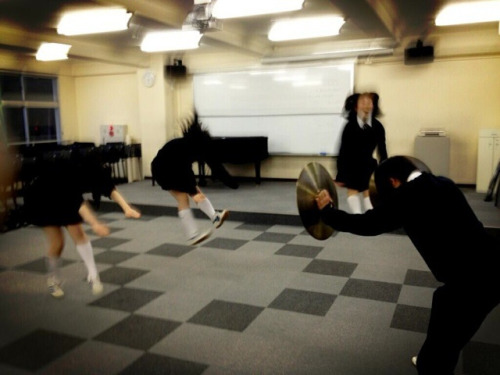
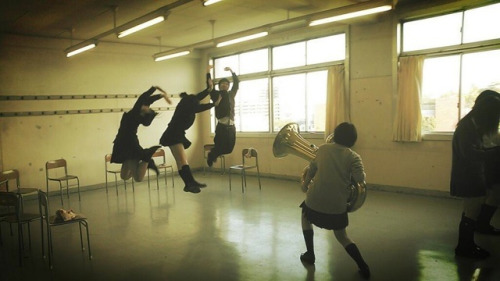
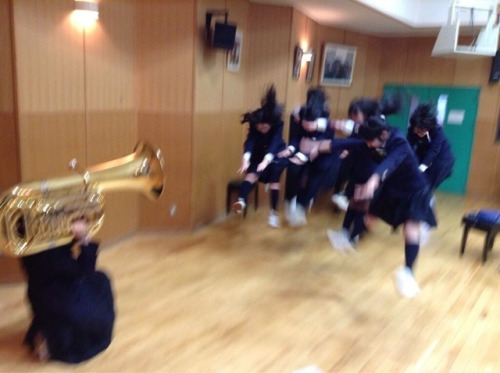
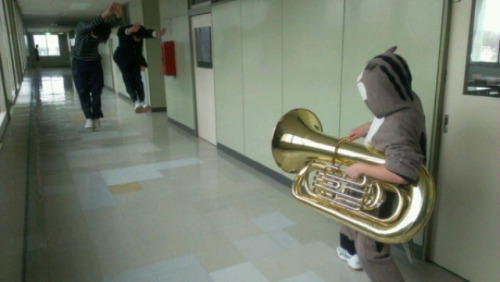







 At Wednesday’s meeting for ExxonMobil shareholders in Dallas, CEO Rex Tillerson told those assembled that an economy that runs on oil is here to stay, and cutting carbon emissions would do no good.
At Wednesday’s meeting for ExxonMobil shareholders in Dallas, CEO Rex Tillerson told those assembled that an economy that runs on oil is here to stay, and cutting carbon emissions would do no good.